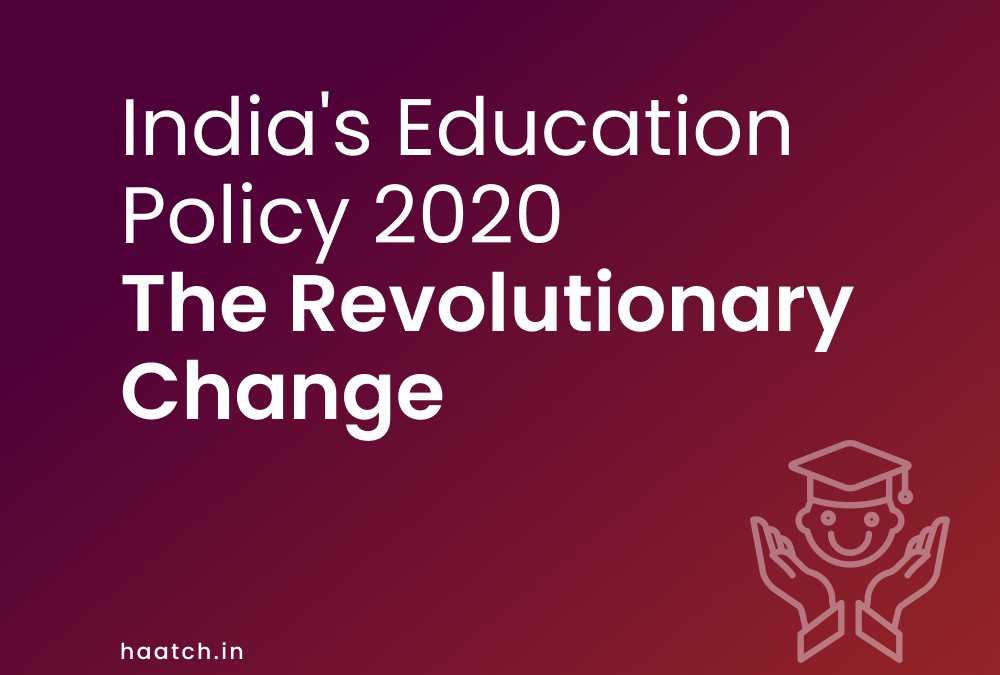National Education Policy 2020 (NEP 2020) is the first education policy of the 21st century to replace the thirty four year old National Education Policy 1986, modified in 1992.
The Vision of this policy
The National Education Policy envisions a system rooted in Indian ethos that contributes directly to transforming India, sustainably into an equitable and a vibrant knowledge society by providing high quality education to all and thereby making India a global knowledge superpower. The vision of the policy is to create an imprint in the learners, a deep rooted pride in being Indian, not only in thoughts but also in spirit and deeds, as well as develop all the features needed to reflect a truly global citizen.
The Principles of this policy
The core purpose of this system is to build good human beings capable of rational thought and action, possessing compassion and empathy, courage and resilience, creative imagination with sound ethical moorings and values.
The foundational principles of this policy includes Access, Equity, Quality, Affordability, Accountability.
The main principles are:
- Recognizing, identifying and strengthening the unique capabilities of each student.
- Flexibility for learners to choose their learning trajectories and programs.
- No hard separations between sciences and arts, between curricular and extracurricular activities, between vocational and academic streams.
- Promotion of multilingualism and the power of language in learning and teaching.
- Emphasis on conceptual understanding rather than learning for exams.
- A light but tight regulatory framework to ensure integrity, transparency and resource efficiency of the system.
- Encouraging innovation and out of the box ideas through autonomy, good governance and empowerment.
- Regular formative assessment for learning instead of summative assessment.
- Multi-disciplinary and a holistic education across the sciences, social sciences, arts, humanities and sports to ensure the unity and integrity of all languages.
- Continuous review of progress based on sustained research and regular assessment by experts.
Some of the biggest reforms the NEP 2020 includes teaching upto the class five in mother tongue or regional language, lowering the stakes of board exams, allowing foreign universities to set up campuses in India.
Main Highlights of this policy
1. The 5+3+3+4 system:
Three years in Pre-school and Twelve years in school.
- Foundation stage(5) – multilevel, play/activity based learning
- Preparatory stage(3) – play, discovery and activity based interactive classroom learning
- Middle stage(3) – experiential learning in the sciences, mathematics, arts, social sciences and humanities
- Secondary stage(4) – multidisciplinary study, greater critical thinking, flexibility and student choice of subjects.
2. Flexible subject options:
Upon the implementation of this policy, a student can study Political science with Physics and Chemistry with History etc. A student can study Science, Commerce as well Arts subjects all together.
3. Self assessment:
The new report cards will include self assessment by students in addition to the existing teacher’s evaluation sheet. PARAKH(Performance Assessment, Review and Analysis of Knowledge for Holistic development)- a new National Assessment Centre will be set up as a standard setting body.
4. Multiple entry and exit points in higher education:
Under the Four year programme students can exit after One year with a Certificate, Two years with a Diploma, Three years with a Bachelor’s Degree and Bachelor’s with Research after Four years.
5. National Educational Technology Forum(NETF):
NETF, an autonomous body will be created as a platform to promote free exchange of ideas on the use of technology to enhance learning, assessment, planning and administration
In Conclusion
National Education Policy 2020 is indeed a big revolutionary change of idea comprising the much needed modifications in the educational system. It is undoubtedly a progressive and ambitious policy that India needed very badly.
Let it shine as bright in practical as it is on paper!

